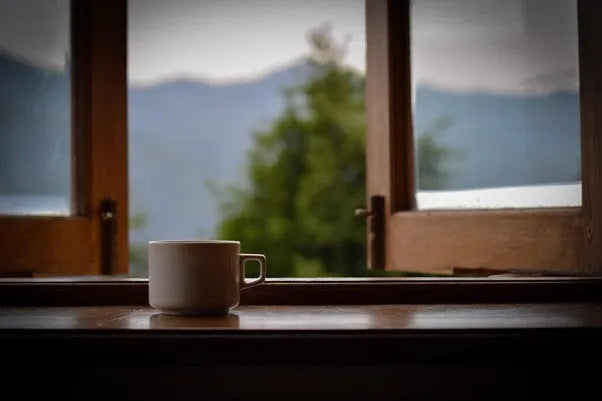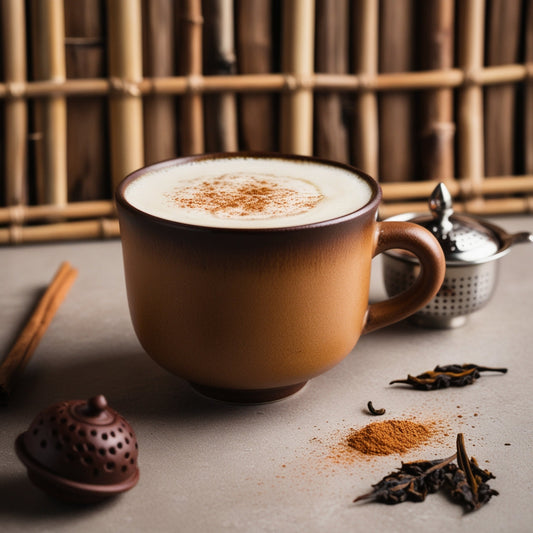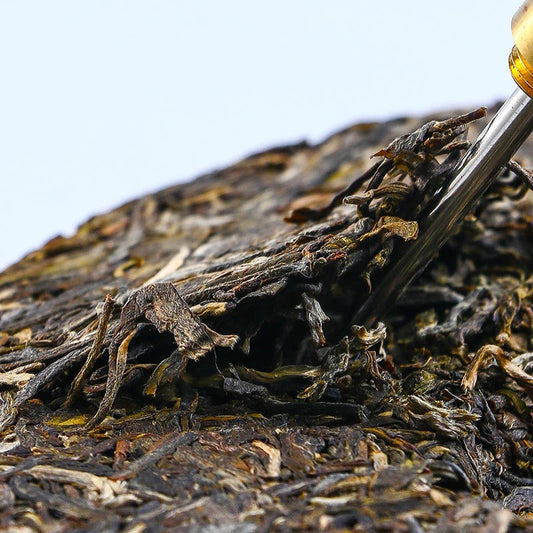Overview
Does black Tea have caffeine?
Black Tea has caffeine but not as much as coffee. It has less caffeine. But it has one of the most caffeine content tea among other teas. Black tea vs coffee is still an ongoing battle between tea enthusiasts. In this article we are going to look through how much caffeine is in Black tea, Is it bad for health or is it good for health.
Table of content
- Introduction
- Black Tea
- Caffeine
- Black Tea and Caffeine
- Benefits of Black Tea and Caffeine
- Risks of Black Tea and Caffeine
- Conclusion
Introduction
Black tea ranks among the most widely consumed teas globally, known for its strong, rich flavour and dark colour. The full oxidation of the tea results in a deep and bold taste profile. While many people are drawn to its flavour, its caffeine content is another key component. Moreover, caffeine helps people feel more awake, increase focus, and reduce fatigue. For those who are used to coffee, this tea offers a less intense but still effective way to get a caffeine fix. It provides a slower energy boost compared to coffee, which many people prefer to avoid the sudden drop in energy that often follows coffee consumption.
Black Tea
Black tea is produced from the leaves of the Camellia sinensis plant, just like green and white tea. What differs this tea from others is its oxidation process.The leaves undergo full oxidation, resulting in a darker tea with a richer flavour. Many people enjoy this tea with milk or sugar, although others drink it plain. It serves as a standard in cultures like British and Indian tea traditions and comes in several varieties.
Popular types of black tea include:
- Darjeeling: Known for its light body and floral aroma, often referred to as the “champagne of teas.”
- Assam: A bold and malty tea that is perfect for breakfast.
- Earl Grey: A black tea which is flavoured with bergamot oil which offers a citrusy taste.
- English Breakfast: A strong, full-bodied tea commonly consumed in the morning.
No matter the variety, this tea contains a moderate amount of caffeine that helps provide a smooth energy boost. It is also great to consume black tea on breakfast but not on an empty stomach.

Caffeine
Caffeine is a naturally occurring compound found in coffee, tea, and cacao plants. It works as a stimulant that affects the central nervous system, helping you feel more alert and focused. Caffeine is one of the most widely consumed psychoactive substances in the world, and it’s especially popular in beverages like coffee and tea.
The caffeine content in different drinks can vary greatly. For example, a cup of coffee typically contains much more caffeine than a cup of tea. However, the amount of caffeine in a drink also varies based on factors like the brewing method, the type of tea or coffee beans used, and the steeping or brewing time.
While people recognise coffee for its high caffeine content, black tea delivers a more moderate amount, which may suit to those who want a milder effect.
Black Tea and Caffeine
The amount of caffeine in black tea depends upon factors like the type of tea, how it’s prepared, and how long it’s steeped. However, the longer you steep this tea, the more caffeine it will contain. For those who enjoy a strong cup of black tea, a longer steeping time can increase the caffeine concentration. Additionally, on the other hand, steeping the tea for a shorter time will result in a milder flavour and lower caffeine levels.
Although this tea contains less caffeine than coffee, it can still have a noticeable impact on energy levels. The caffeine in this tea is absorbed more slowly, leading to a more gradual increase in alertness. This makes it an ideal choice for those who want to avoid the intense energy spikes and crashes often associated with coffee.
How Caffeine Works in Black Tea
Caffeine works by blocking the effects of adenosine, a brain chemical which is responsible for making you feel sleepy. When caffeine blocks adenosine, it helps keep you awake and alert. However, unlike coffee, which can cause a rapid increase in energy followed by a crash, this tea offers a steadier, more sustained release of energy.
Benefits of Black Tea and Caffeine
Black tea offers numerous health benefits, many of which are linked to its caffeine content. When consumed in moderation, this tea can provide a range of positive effects on both physical and mental health.
1. Improved Focus and Mental Clarity
The caffeine in this tea can help enhance concentration and cognitive function. Many people find that drinking black tea helps them stay alert and focused during long workdays or study sessions. The moderate amount of caffeine helps boost brain activity without overstimulating the nervous system.
2. Heart Health
Research suggests that this tea may support heart health by improving blood circulation and lowering cholesterol levels. The antioxidants in this tea, such as flavonoids, can help reduce the risk of heart disease. Caffeine has also been shown to improve circulation, which can promote better cardiovascular function.
3. Enhanced Digestion
The tannins in this tea may have a positive effect on digestion, helping to soothe digestive issues like bloating or indigestion. The caffeine can also stimulate the production of digestive enzymes, aiding in the breakdown of food.
4. Increased Metabolism
Black tea may help increase metabolism, thanks to its caffeine content. While it’s not a miracle solution for weight loss, drinking this tea can slightly boost the body’s fat-burning processes, especially when combined with a balanced diet and regular exercise.
5. Energy Boost Without the Jitters
Many people prefer black tea over coffee because it offers a more gradual energy boost. The lower caffeine content allows for sustained energy without the sudden spike and crash that coffee can sometimes cause. This makes black tea a great option for those who want a milder stimulant.
Risks of Black Tea and Caffeine
While it has many benefits, it’s important to be aware of the potential risks, especially when consumed in excess.
1. Overconsumption of Caffeine
Drinking too much of this tea can lead to overconsumption of caffeine, which may cause side effects like headaches, restlessness, or difficulty sleeping. While black tea contains less caffeine than coffee, drinking several cups per day can still result in an excessive intake of caffeine.
2. Stomach Issues
Black tea contains tannins, which can increase stomach acid and cause irritation. Drinking this tea on an empty stomach may lead to discomfort, such as nausea or stomach cramps. It’s often best to drink it after a meal to avoid these issues.
3. Interference with Iron Absorption
The tannins in this tea can interfere with the absorption of iron from plant-based foods. This may be a concern for those who are at risk of iron deficiency. To minimise this effect, it’s recommended to drink it between meals rather than with meals.
4. Caffeine Dependency
Consuming caffeine regularly can lead to dependency. Some people may become reliant on caffeinated drinks like black tea to stay alert and experience withdrawal symptoms, such as fatigue or headaches, when they miss their daily dose.

Conclusion
Black tea offers a moderate amount of caffeine that can provide a steady energy boost without the jitters associated with coffee. Whether you’re drinking it to stay awake, improve your focus, or simply enjoy its rich taste, black tea is a versatile beverage with numerous benefits. It has the ability to enhance focus, support heart health, and aid digestion makes it a popular choice for many. However, like any caffeinated beverage, it’s important to consume it in moderation to avoid potential side effects. If you’re looking for a balanced way to add caffeine into your daily routine, this tea could be the perfect option. Consider using another teas like Pu-erh tea which also comes with a lot of benefits and it has a rich taste.
Q&A Section
Q1: How much caffeine does black tea have compared to coffee?
A1: It contains around 40-70 mg of caffeine per cup, while coffee usually contains about 95 mg. This makes this tea a more moderate option for those wanting less caffeine.
Q2: Is black tea safe to drink every day?
A2: Yes, it can be safely consumed daily, but it's best to limit intake to 3-4 cups per day to avoid consuming too much caffeine.
Q3: Can black tea help with weight loss?
A3: While this tea may help increase metabolism, it should be combined with a balanced diet and exercise for effective weight loss.






